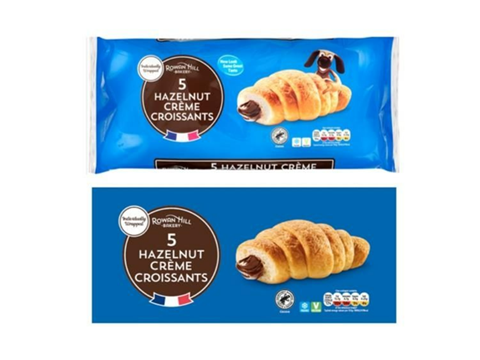
Lidl GB has committed to removing all packaging designs deemed attractive to children from its least healthy own-brand products by mid-2025, aiming to support healthier choices.
Seeking to go beyond the new UK legislation set to restrict the advertising of less healthy products to children from October 2025, the retailer says it will eliminate design elements such as 3D or animated shapes, brightly coloured patterns, or playful product names that do not reflect the items themselves.
Lidl’s gummy bears are due to transition from its bright, cartoon-style packaging to a simpler, more product-focused design emphasizing its fruit flavours. The move builds on its packaging changes from 2020, when Lidl states it became the first UK supermarket to confirm the removal of cartoon characters from its breakfast cereals to help parents resist ‘pester power’.
In spring 2024, the policy was expanded to ban cartoon characters from all ‘less healthy’ products aimed at children, following on from the discounter removing sweets and chocolates from checkouts nationwide in 2014. Apparently, Lidl aims to ensure that any product deemed as least healthy according to the World Health Organisation’s (WHO) Nutrient Profiling Model or the Food Standards Agency (FSA) 2004/05 Nutrient Profiling Model, alongside any breakfast cereal, cannot be marketed in a way that appeals to children, with only the healthiest of products being targeted at them.
Richard Bourns, chief commercial officer at Lidl GB, said: “We know that households want to achieve healthier lifestyles and so we’re fully committed to helping families adopt better habits while still having access to high-quality, affordable, and enjoyable products. As a father of young children myself, I know how influential packaging designs can be on their preferences, and therefore understand the importance of taking a proactive position to better support parents up and down the country.”
Last year, Lidl announced it would be packaging its entire fish range in trays made with 80% recycled PET. The move aligned with the retailer’s plans to combat single-use plastic waste by cutting 30% of plastic from its own-brand items, utilizing at least 25% recycled materials in the same range, and completely transitioning into easily recyclable plastic from 2025.
In related news, INEOS Styrolution revealed this month that it has completed a collaborative project to mechanically recycle polystyrene into yoghurt cups, set to hit Lidl supermarket shelves early this year. The recycled material reportedly provides the same physical properties as conventionally produced polystyrene, and the environmental footprint of a recycled cup would be ‘significantly lower’ than a conventional polystyrene cup.
If you liked this story, you might also enjoy:
The ultimate guide to the Packaging and Packaging Waste Regulation in 2024
How are the top brands progressing on packaging sustainability?
Sustainable Innovation Report 2024: Current trends and future priorities
Everything you need to know about global plastic sustainability regulation














No comments yet